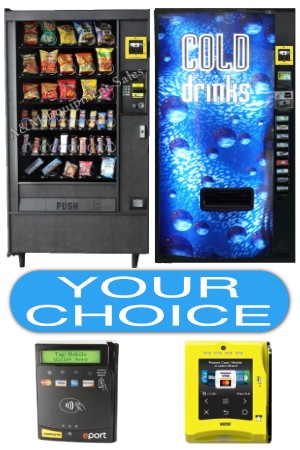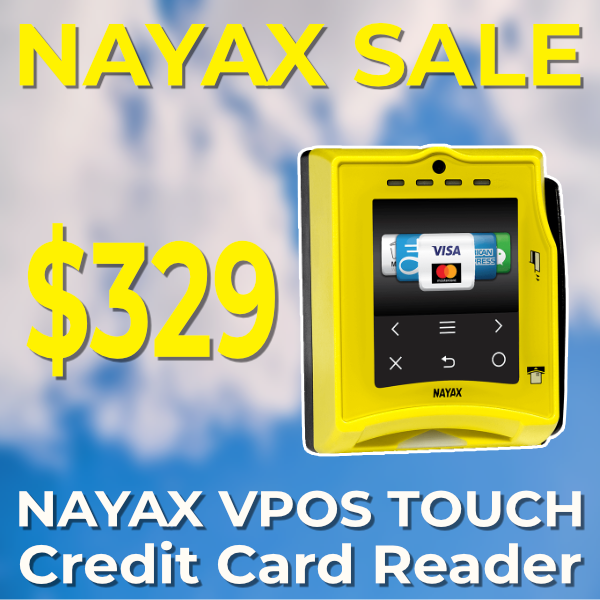Part 1
Are You in the Vending Business I recently sold my 15-year-old vending business because of health concerns and a pending divorce. While consulting with the new owner, it dawned on me that I was “in” the vending business – not just an owner operator of a vending route. I have a deeper understanding of the business, and want to share some success tips with you.
First and foremost, the vending machine business is just that: it is a business. It must be treated as such. A large proportion of small vending operators treat their routes as a job rather than a business. They go to work each day, work hard and make a good living. They prioritize their activities by route operations and cash flow. They get very busy stocking machines, purchasing product, loading trucks, repairing machines and all of the other activities that comprise a vending operation. But they tend to overlook the business functions that are so critical to long-term success.
What business functions? I mean accounting, management and marketing. It’s easy to get so busy with the day-to-day activities that these important functions are practically ignored. I realized this early on and worked diligently to implement some of these functions into the day-to-day operations.
Accounting
Good accounting practices are critical to business success. If you do not set up a good accounting system, you compromise your ability to financially evaluate your business. You might operate under the assumption that you are profitable when, in fact, you are not.
There are many good “off the shelf” accounting systems that you can adapt to your vending business. Determine the level of financial detail that you desire and implement a program based on those desires. Consult an accountant for advice. Do not overcomplicate the procedure with too much busy work, but include enough information to get a complete picture of the various aspects of your business.
For example, I used QuickBooks. My program broke sales down into several categories: snack, can soda, bottle soda, cold foods, hot beverage (coffee machines), office coffee service (OCS). I could have set up categories to the column level (each individual product), but decided it would take a lot of time to track these items without enough benefit to me. While I was interested in how many Snickers and Mountain Dews sold at XYZ location, I really only needed to know how many snacks and sodas sold.
I did track each machine for sales, because I learned (from my mentor) that tracking sales by machine can help reduce the number of service calls you receive per account. Sales falling off in a particular machine can indicate that a validator or changer is going bad. This information also helps you determine which type of accounts do what type of sales, and helps with forecasting the types of products you could run in a new account of a similar type.
Understanding your sales is only half the battle. A proper accounting system allows you to track the cost of goods sold which, in turn, allows for you to determine your margin. This system helps you to fully understand your expenses in a weekly, monthly and yearly format, and determines your net profit and cash flow for the time period. And cash flow is king, because all things happen with good cash flow (and very little happens without it).
Cash flow analysis lets you determine the value of an account. Far too many vendors keep unprofitable accounts because they think they are making money. Factor time and “stales” into the equation, and you could find that you need either to increase your pricing or pull the account. Don’t assume that a location is profitable just because you drive past it on your regular route.
Scheduling should be done by cash flow. If an account generates $400 per month and you have a 100% markup, you generate $200 in net profit from that account. Now assume it costs you $55 per hour to run your truck. (This is actually low if you account for the time value of money on your inventory, your labor, vehicle maintenance, mileage, fuel, machine capital cost, interest, etc.)
Total revenue for the year ÷ the total hours you worked:
$165,000 ÷ 3,000 hours (60 hours/week x 50 weeks)
So. . .how often do you service this account? Maximum number of service stops per month would be $200 divided by $55, which is 3.64 times. Of course, you cannot run a stop 3.64 times, but be conservative and run it 3 times per month; 4 makes it unprofitable.
Our business scheduled a stop at $125 in gross sales per hour, and I expected a truck to gross $1,200 – $1,500 per day to be profitable. These were monthly averages – some days were lower, some higher. We would run $400 per month stops two times a month and, with efficiency, the account could be serviced in about 45 minutes.
If you haven’t calculated your hourly rate, that is the first step. Business is about profit, and understanding that time is valuable is critical.
Another important accounting principle is tracking your assets. Do you have a list of your assets (machines)? Do you know what you paid for them, what you have depreciated them down to, how much they are worth if you needed to sell them today? Do you know where all of your machines are? You might laugh at that, but many vending operators have had machines go missing, and many large bottlers have had many machines go missing.
Compile a current list and valuate those machines as equipment (a conservative estimate of what they’d sell for within 30 days). This helps you determine what your assets are generating, or your return on investment.
If you have $10,000 invested in an account that does $400 per month in sales, nets $200 per month in profit, and generates $15 per month after all expenses, you have just earned less than 2% on your $10,000. You could have put that $10,000 in the bank at 2% and earned more. This is called opportunity cost. Better numbers on that $10,000 would be $85 per month, more than a 10% return.
The vending business is, literally, a business of pennies. As my dad used to say, “If you mind your pennies, the dollars will follow.” Establishing sound accounting principles will help you get “in” the vending business. Are You in the Vending Business
Part 2: Management techniques and tips that generate extra profits



